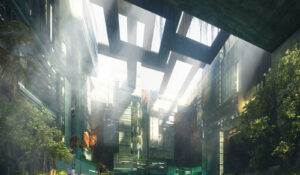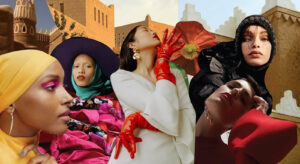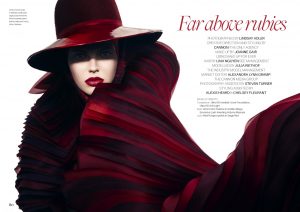Saudi Arabia has always emphasized the importance of promoting science, culture, and the arts to contribute to dialogue and communication between nations for the sake of a prosperous present and a better future for the next generations.
In 2020, Prince Badr bin Abdullah bin Farhan, Minister of Culture, appointed Dina Amin as CEO of the Visual Arts Authority and undertook the Ministry’s vision towards the sector.
Dina Amin is a Saudi expert in visual arts academically and professionally. She holds a BA in history of arts and architecture from Wellesley College, Massachusetts, USA, and has passed a training course at MIT in architecture.
Amin has a distinguished career that spans more than 20 years in international companies specializing in contemporary arts, including Philips, the global leader in the sale and purchase of art pieces and designs, and Christie’s, one of the largest art auction houses in the world.
The Visual Arts Authority comes as one of 11 new cultural bodies recently launched by the Ministry of Culture to manage the Saudi sector. Their responsibilities include setting a development strategy, following up on its implementation, supporting and empowering talents, encouraging individuals, institutions and companies to produce and develop content related to visual arts, supporting the protection of intellectual property rights, and holding courses and programmes.
The Saudi Minister of Culture, Prince Badr bin Abdullah bin Farhan, stresses the Kingdom looks at culture as one of the most prominent foundations for human development; it builds bridges of understanding between societies for the sake of a stronger world where people are interconnected.
Pillars of national transformation
Five years ago, the Kingdom announced culture and arts among the pillars of national transformation through Vision 2030. The goal is to build a vibrant society, a thriving economy, and an ambitious nation.
Subsequently, confident steps were taken towards a more prosperous future through the ambitious vision launched by Prince Mohammed bin Salman under the guidance of the Custodian of the Two Holy Mosques. The Minister of Culture affirmed: ‘Soon its features began to be reflected positively in several sectors, including education, culture and the arts.’
Once again, the Kingdom is determined to continue its journey in promoting joint work with UNESCO and achieving the United Nations’ goals for sustainable development under the umbrella of joint collective action.
Visions and trends
The Ministry of Culture launched the vision and orientations on March 27, 2019. They represent the framework of the Ministry’s mission to develop the cultural sector in the Kingdom: culture as a way of life, for economic growth, and to enhance the Kingdom’s international status.
These goals are closely aligned with the strategic axes of the Kingdom’s Vision 2030, represented in building a vibrant society, a thriving economy, and an ambitious nation.
In this context, the Ministry of Culture seeks to develop capabilities and enhance opportunities within the sector by transferring aspects of the Saudi cultural heritage to the daily life of citizens and residents.
The Ministry of Culture has identified 16 priority sub-sectors to focus on and enhance pioneering initiatives. The vision and orientations stipulate the creation of 11 cultural entities.
Membership of UNESCO Executive
The Ministry of Culture is the supervisor of the cultural sector in the Kingdom, initially affiliated to the Ministry of Information, but separated from it afterwards to become an independent department.
The Kingdom is interested in developing the culture and arts sector within the Saudi Vision 2030. The country is a founding and supportive member of the United Nations Educational, Scientific and Cultural Organization (UNESCO) and obtained a seat on the UNESCO Executive Board in the November 2019 elections, occupied by the Minister of Culture, Prince Badr bin Farhan.
Four Pillars
The Ministry’s tasks rely on four fundamental axes: leadership, support, care, and development. These lead the cultural movement in Saudi Arabia, expose its cultural aspects, define and sponsor the Kingdom’s heritage properties, set the necessary regulatory and legal frameworks for the development of sectors, and take care of the cultural heritage.
The Ministry also develops talents, facilitates initiatives, and works to enhance community participation through an integrated plan that contributes to cultural and heritage development.
Although the Kingdom’s Vision 2030 contains many ambitious goals, its support in culture and entertainment are the two primary life quality components that strike the most.
National Music Ensemble
After decades without the Saudi Radio Music Band, which included among its members the pioneers and symbols of modern Saudi music (most notably the composers Omar Kadars, Sami Ihsan, and Ghazi Ali), the Ministry of Culture took an important decision. It established the National Music Band in 2019 to represent the Kingdom in global and regional musical forums. The band has 26 Saudi musicians; the King Fahd Cultural Center is its headquarters. Its first official appearance was in a ceremony at the Okaz market in Taif.
Cultural investment
The vision emphasized that the reality of recreational and cultural opportunities did not live up to the enormous potentials stored in Saudi’s land, culture, history, and civilization, nor did it fit the prosperous economic situation of the Kingdom.
Fortunately, the local cultural reality has witnessed a different movement over the past five years. In addition to establishing the vast Islamic Museum in Riyadh, the prospect will develop culture and provide investment opportunities through festivals and programs aligned with the current digital transformation worldwide. The Ministry has determined that by supporting non-profit and private sectors in organizing festivals and events.
The role of government funds will be in contributing to the establishment and development of entertainment centres and encouraging Saudi and international investors. The plan includes partnerships with global entertainment companies and land allocation for cultural and entertainment projects, such as libraries, museums, arts, and others.
Openness and cinema
For years, festivals and cultural events have welcomed guest of honour applications as part of a global tradition. The Kingdom did not ignore this aspect, and it hosted several countries from all continents. Such an approach is currently witnessing remarkable growth through some festivals to be implemented by the Ministry. Perhaps the most anticipated of them is the Red Sea International Film Festival, not to mention the upgrade of previous festivals, now with international dimensions, most notably the Janadriyah Festival and the Okaz Market.
The most prominent points of this plan are the approval for opening a movie theatre in Saudi Arabia, an aspiration of intellectuals and artists alike who hope this next step will be of great importance in the film industry in the country.
Simultaneously, the upcoming Red Sea Festival adheres to the initiative of the Ministry of Culture of a cultural movement at the local, Arab and international levels. The event is one of the Red Sea Film Festival initiatives, a modern institution registered as one of the supporting actors of the local film sector. The Minister of Culture, Prince Badr bin Abdullah bin Farhan, chairs its board of trustees.
Observers can note that the steps for Saudi cinema are leaping well and moving in a planned and thoughtful direction, within a complete march of the organization announced during the Kan Al-Mady festival.
World Heritage
Five sites in Saudi Arabia were included in UNESCO’s World Heritage sites list. The first was Mada’in Saleh in 2008, followed by the Al-Turaif neighbourhood in the old Dir’iyah area in 2010.
Historic Jeddah was registered in 2014, and finally, the rock art in the Hail region in 2015.
World Summit
Next March, the Kingdom will host the World Summit on Artificial Intelligence, a global annual forum for exchanging experiences and forging partnerships between local and international actors and companies in the world of data and artificial intelligence.
Temporary list
In 2015, UNESCO added ten Saudi intangible cultural heritage elements to its World Heritage temporary list.
The list includes the art of falconry, an ancient hobby in the Arabian Peninsula region and some other Arab countries, and Arabic coffee under the title Arabic coffee is a symbol of generosity.
Al-Arda Najdi was registered as Al-Arda Najdi—Folk Dancing, Drum Beating and Poetic Songs from the Kingdom of Saudi Arabia. It is also called the Saudi Arda.
The folk flute dance, one of the traditional dances in the Hijaz and often practised in family or national festivities is another highlight.
Finally, the art of the Asiri cat made its way to the list; it is one of the abstract arts from the Asir region performed by women to decorate their homes.
National Theater Company
Similar to the establishment of the National Band, the Ministry of Culture included the launch of the National Theater Company. Playwright Abdulaziz Al-Ismail was appointed as Head of the National Theater Company, the King Fahd Cultural Center in Riyadh is the headquarters.








